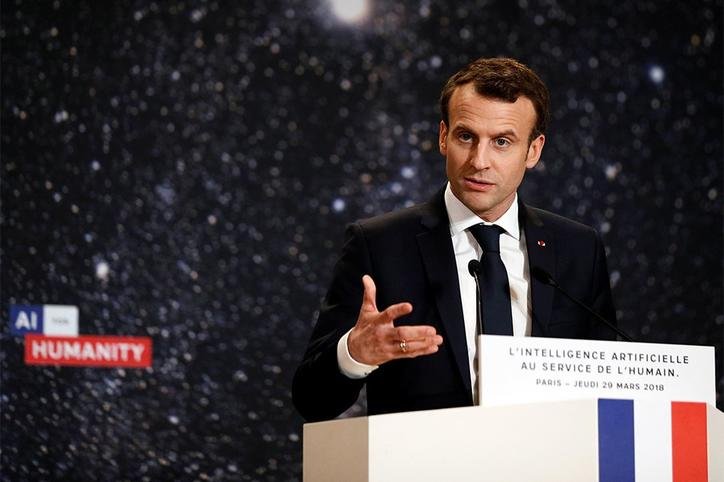Emmanuel Macron has warned that landmark EU legislation designed to tackle the development of artificial intelligence, risks hampering European tech companies compared to rivals in the US, UK and China, setting the stage for a new battle over regulation of the emerging technology.
Addressing an audience in Toulouse this week, the French president attacked the new Artificial Intelligence Act agreed recently, saying: “We can decide to regulate much faster and much stronger than our major competitors. But we will regulate things that we will no longer produce or invent. This is never a good idea.”
Macron said he was concerned that the new law means the EU will enforce the world’s toughest regime on so-called foundational models, the technology that underpins generative AI products such as OpenAI’s ChatGPT, which can churn out quantities of humanlike words, images and code in seconds.
He cited the case of Mistral, the eight-month-old Paris-based AI start up that has been valued at €2bn in a blockbuster funding round, as an example of “French genius” that was an early leader in building AI models.
But Macron added: “When I look at France, it is probably the first country in terms of artificial intelligence in continental Europe. We are neck and neck with the British. They will not have this regulation on foundational models. But above all, we are all very far behind the Chinese and the Americans.”
Macron’s comments may presage a new battle over the final terms of the AI Act, which still needs to be ratified by member states over the coming weeks. France, alongside Germany and Italy, are in early discussions about seeking alterations or preventing the law from being passed.
“The stakes are high and the French will try to block this,” said a person with knowledge of the talks, although they thought the text would ultimately be agreed despite opposition.
French negotiators had tried to water down the proposed rules in marathon talks last week, but ultimately the bloc moved towards a tough regulatory regime that imposes new transparency requirements on powerful AI models as well as strict restrictions on the use of facial-recognition technology.
The new rules, which will probably come into force in early 2025, also introduce prohibitions on the use of AI for “social scoring”, the use of metrics to classify people based on their behaviour or personal characteristics. Firms that fail to comply with the new legislation face fines of up to 7 per cent of global turnover.
“The last-minute attempt to regulate foundation models has turned this on its head,” said Cecilia Bonefeld-Dahl, director-general for DigitalEurope, which represents the continent’s technology sector.
“The new requirements — on top of other sweeping new laws like the Data Act — will take a lot of resources for companies to comply with, resources that will be spent on lawyers instead of hiring AI engineers.”
However, Ursula von der Leyen, president of the European Commission, the executive body of the EU, praised legislators for the political agreement on the AI rules, saying last Friday that “The AI Act transposes European values to a new era.”




